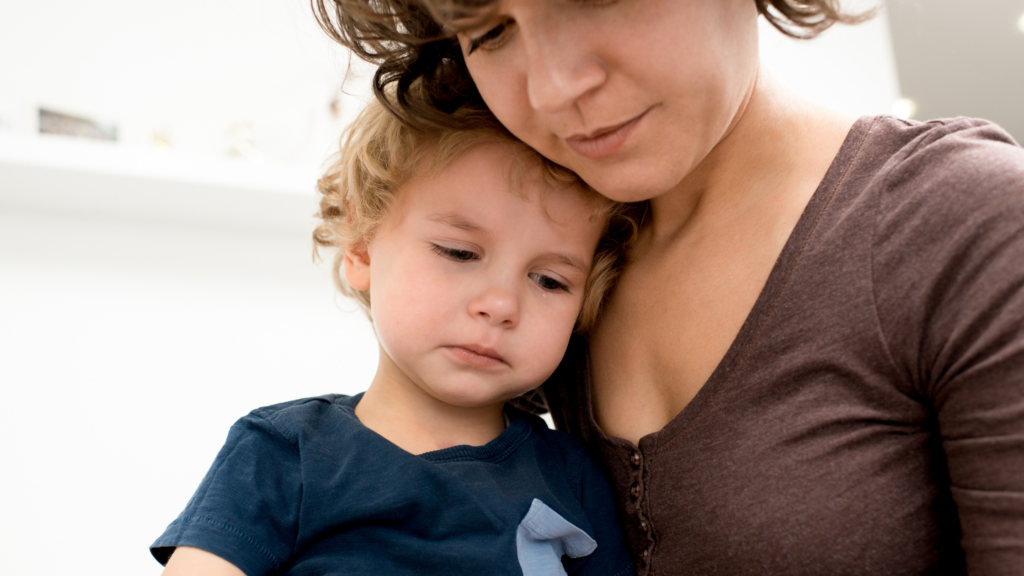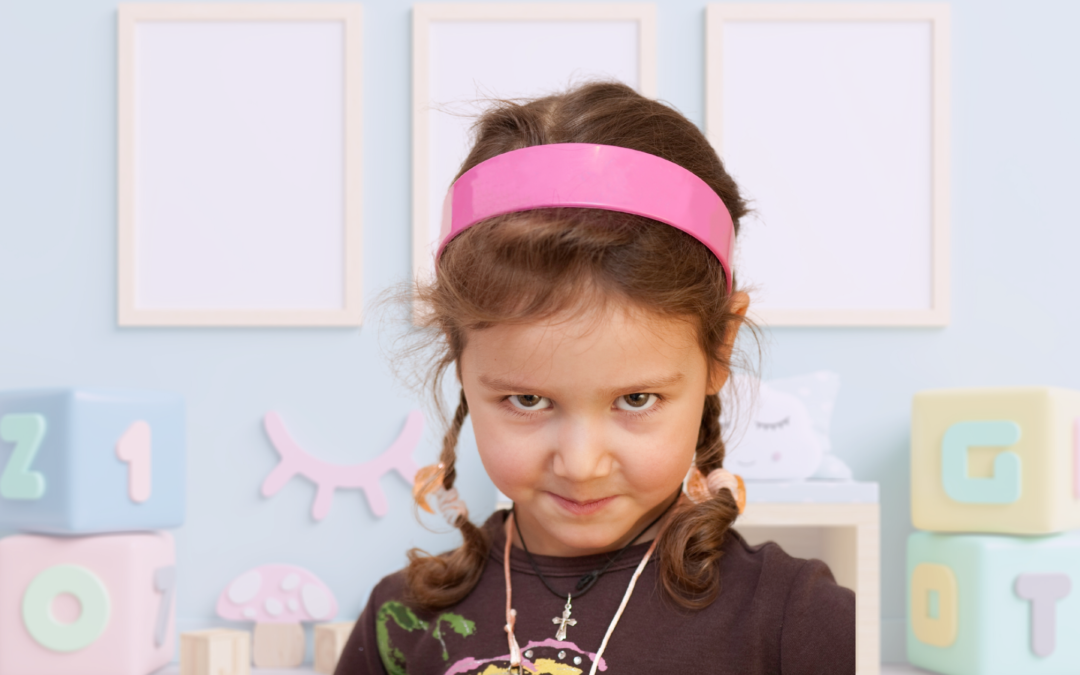Saying “NO” to all your requests, insisting on doing everything by themselves, refusing to wear a jacket even with freezing temperatures, throwing themselves on the floor and having a huge tantrum when everything was absolutely fine about 5 seconds ago. Does it sound like familiar situations to you?
Parents, Educators, and Pediatricians often mention the term “terrible 2” when the child reaches this “interesting” stage. Okay, it wouldn’t be fair to call it “fun”, but personally I don’t like the word “terrible”.
Of course, no one really means that their child is terrible, this term is usually intended to help an exhausted parent to vent or promote a sense of solidarity among those who are going through or have gone through this phase with their kids.
But when we use negative words, they can affect the understanding of what we are experiencing, and that includes your child – who is experiencing a time of discovery and a lot of frustrations. Feeling “terrible” in the eyes of the parents will only intensify even more undesirable behaviors.
When does it start?
This beautiful universe of ups and downs, despite what the name implies, can happen anytime between 18 and 30 months of age and last until or beyond the age of 3.
The tendency is that as language skills improve, the episodes of frustration that cause all these behaviours decrease, as children begin to be able to express themselves more and better.
Developmental phase
This is a period of discovery, exploration and learning for your toddler. Despite the huge exhaustion and frustration that these types of behaviors cause (for both you and your child), all the tears, tantrums, whining, and testing boundaries are signs of a healthy developing child that has achieved some pretty major developmental milestones.
Around 2 years of age, children feel more confident in many tasks, and that is also when they start to have a better understanding of the things around them.
They want to follow the adults’ routine, help with cleaning, feed their younger brother, talk on the phone, use the bathroom, explore kitchen utensils, and demonstrate all the independence they believe they have already acquired.
They want to be independent so much, but at the same time they may want the presence of their parents watching and contemplating their achievements, but they still don’t have the language necessary to communicate their wants and needs. And when that happens, it’s time to show all the frustration. Hey, tantrums!

If you think about it…
Much of what can be perceived during the first years of a child’s life is extremely consistent with human nature.
When toddlers discover “their powers”, they feel the need to be in control, and to have what they want at THAT moment. They want to be right, and to be the center of attention.
Children tend to want what others have, and need to be aware of what will happen in their days.
Isn’t it amazing to realize that adults often have certain characteristics as well?
The positive aspects
It won’t be easy to see your toddler having a tantrum in the middle of the mall with people looking at you both and you not knowing how to act.
Nor will it be pleasant to try to leave the house for an appointment and be late because your toddler decided that the blue shirt does not match the blue of the rain boot on a sunny day!
But, as with everything in life, all these (annoying) demonstrations of behavior change are accompanied by many positive aspects!
Becoming individuals
A toddler is going from being a baby to being a small person, now with his own wishes, opinions and thoughts that may (and will) diverge from his parents.
It is at this stage that they begin to express themselves and demonstrate their preferences, likes and dislikes and begin to discover how the world works and how they can participate in it.
Expressing themselves
Usually children reach the age of two already knowing how to speak many new words. Every day this vocabulary grows more and more!
They learn very easily, and in a short time they are able to express their wishes and communicate more clearly.
This is a very important milestone in the development of children, as they feel more confident and want (at all costs) to express themselves – even when at times, this communication still does not correspond to what they would like. Hey tantrums (2)!
Being leaders
Toddlers are leaders ready to make decisions!
Face your stubborn, bossy little one in a positive way. Your child’s demanding nature can help transform her into a confident and determined adult!
All this stubbornness shows that your child knows what she wants and is willing to fight for what she believes in (even if this means going to Child Care without shoes!)
Taming a small leader will take a lot from parents, but things can get easier if your child has choices to make.
If going to Child Care without shoes is not an option for you, encourage her to choose between the brown and the green shoes, offer alternatives, let her make choices. This will help your child feel more in control – and remember, this is all about it!
Efficient helpers
“I can do it myself!” – one of the most said sentences by little independent toddlers!
A stubborn attitude that in some situations causes delays and arguments, capable of stressing even the most patient parents.
However, a great way to contain this struggle for independence and power is to encourage your child to help with tasks at home. Give your toddler the confidence he is looking for.
Ask for help when taking the clothes out of the machine, putting the kitchen utensils (plastic) in the drawers, giving the baby brother’s bottle, throwing the rubbish in the bin, etc.
As a good helper, your child will be proud of himself and feel self-sufficient!

Managing emotions
Children live on a constant emotional roller coaster. They go from frustration to laughter, then from crying to giggling in a matter of minutes.
Feeling emotions and expressing them is a very rich skill that some people lack in adulthood.
Emotions are part of any human being, and will be constantly going from positive to negative as we experience the life episodes on our journey.
Being able to feel emotions and show them to others is also a way for your child to learn how to manage them as they grow.
You grow as a parent
This complex phase can be difficult, frustrating and involve many challenges.
But just as little ones grow and evolve, this period will also make you feel stronger and more prepared as a parent.
As you learn to deal with all the unusual situations that your toddler can put you in, you also mature and begin to realize that this is a totally natural phase and that it will pass quickly.
Set clear boundaries, be firm, and notice all the constant developments and learning your child is going through.
You may need to learn how to deal with your own frustrations, fears and expectations. And in a few years, you will realize that this was a necessary process for you both to learn, grow and connect even more!

Have you ever been or are going through difficult, even desperate situations, with your toddler?
What have you learned from this phase of so many challenges and learnings?
Leave your comment and help other parents deal with this magical world of toddlerness!


 My name is Natalia, sweetly called "Lala" since I started working with children. I am the owner of Lala’s Family Day Care and my passion is to make positive connections with my little ones, providing high-quality learning experiences. I believe that every child is unique and they grow the best when they feel valued, loved, happy and secure.
My name is Natalia, sweetly called "Lala" since I started working with children. I am the owner of Lala’s Family Day Care and my passion is to make positive connections with my little ones, providing high-quality learning experiences. I believe that every child is unique and they grow the best when they feel valued, loved, happy and secure.